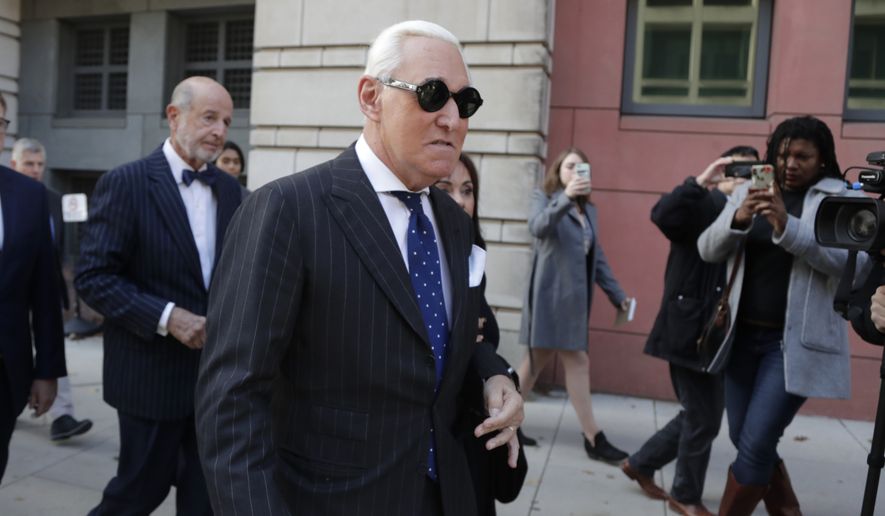Roger Stone formally requested to push back the start of his federal prison sentence another couple of months because of the ongoing novel coronavirus pandemic.
Stone, a former adviser to President Trump, asked through his lawyers Tuesday to postpone the date that he is supposed to begin serving his prison sentence from June 30 to September 3.
In a filing entered in federal court for Washington, D.C., Stone’s lawyers added that the Department of Justice does not object to delaying the start of his sentence by 60 days.
“The defense contacted the United States Attorney’s Office to ascertain its position on this motion, and was informed that, based on the Department of Justice’s and the Executive Office of United States Attorneys’ guidance on the handling of voluntary surrender dates during the pandemic at this point in time, it does not oppose a 60-day extension of Stone’s surrender date,” wrote Stone’s lawyers Seth Ginsberg and Grant J. Smith.
A spokesperson for the U.S. Attorney’s Office in D.C. declined to comment.
Stone, 67, was found guilty last year of seven counts of obstruction, witness tampering and perjury and was accordingly sentenced in February to serve 40 months in federal prison. The national outbreak of COVID-19, the contagious respiratory disease caused by the coronavirus, worsened in the weeks that followed, leading Stone to recently say he while free on bond that he believes he would likely die if imprisoned during the pandemic.
His lawyers echoed those concerns in the court motion, citing “the serious and possibly deadly risk he would face in the close confines of a Bureau of Prisons facility, based on his age and medical conditions.”
The lawyers said that they would also be filing under seal a letter from Stone’s doctor providing further details about the unspecified medical conditions, “and the danger to his health that incarceration would present at this time.”
Stone previously said he has a history of asthma. Public health officials have warned that individuals at great risk of becoming seriously ill or dying as a result of contracting COVID-19 include individuals with pre-existing conditions and those over the age of 65.
“Those medical conditions make the consequences of his exposure to the COVID-19 virus in a prison facility life-threatening. The threat of exposure, given the current status of COVID-19 within [Bureau of Prisons] facilities and the lack of testing, is compelling,” Stone’s lawyers added.
• Andrew Blake can be reached at ablake@washingtontimes.com.




Please read our comment policy before commenting.